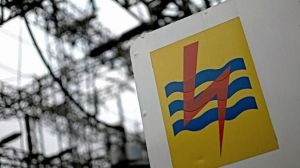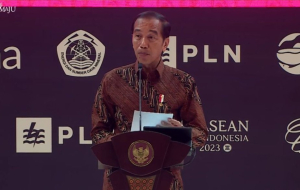PLN EPI to supply 2.2 million tons of biomass to 47 PLN Group power plants
Published on 04/03/2024 at 06:19 GMT+7 Reading time
PLN Energi Primer Indonesia (PLN EPI), a subholding of State electricity company PT PLN, will supply 2.2 million tons of biomass to 47 power plants owned by PLN Group this year, a 220 percent increase compared to the 2023 realization of 1 million tons.
PLN EPI Corporate Secretary Mamit Setiawan said the need for biomass has been increasing from year to year due to the fact that the use of biomass is able to reduce emissions in coal fired power plant and reduce the portion of fossil energy use.
"This year we will supply biomass to 47 PLTUs owned by the PLN Group. The total requirement reaches 2.2 million tons. This is a significant increase compared to the realization in 2023," Mamit said in a statement on Monday, March 4, 2024.
He asked the public and related stakeholders not to worry on the impact of the increase use of biomass as it will not increase the cost of power plant production. The affordable price of biomass, even comparable with coal, makes biomass very economical to use, he said.
"Currently, coal costs 5-6 US cents (around Rp7,795 - Rp9,354) per kilo Watt hour (kWh). Biomass is also equivalent to that. When compared to other renewable energy, biomass is the cheapest," said Mamit.
Emission reduction from biomass use this year is targeted to reach 2.4 million tons of CO2. This is an increase compared to the realization of emission reduction in 2023 of 1.05 million tons of CO2.
Next year, there will be 52 power plants that use biomass with a total need of up to 10.2 million tons of biomass.
PLN EPI has taken a number of measures in an attempt to maintain supply, including conducting digital mapping to identify biomass potential to support supply planning of 2.2 million tons in 2024 and 10.2 million tons in 2025.
In February 2023, PLN EPI, in collaboration with the Yogyakarta Provincial Adminstration, the Yogyakarta Palace, and the people of Gunung Kidul regency, planted 50 thousand trees on a 30-hectare plot of land in the regency. The target for the first harvest in 2025 is 25 tons/ha/year.
"This cooperation also encourages the improvement of the community's economy. Utilizing unused land can have a circular economic impact on the community," said Mamit.
Tag
Already have an account? Sign In
-
Start reading
Freemium
-
Monthly Subscription
30% OFF$26.03
$37.19/MonthCancel anytime
This offer is open to all new subscribers!
Subscribe now -
Yearly Subscription
33% OFF$228.13
$340.5/YearCancel anytime
This offer is open to all new subscribers!
Subscribe now






